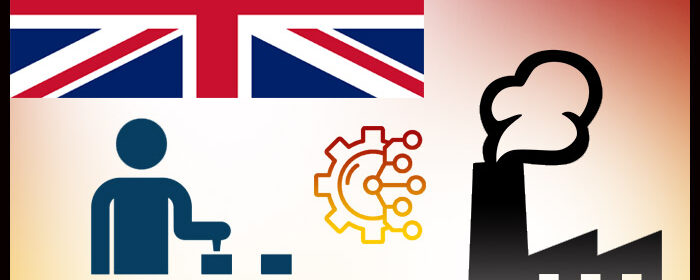UK Private Sector Growth Weakest In 3 Months

The UK private sector expanded for the fifth straight month in June albeit at the slowest pace in three months as the upturn in services activity was largely offset by the contracting manufacturing sector, flash survey results from S&P Global showed on Friday.
The Chartered Institute of Procurement & Supply flash composite output index dropped to 52.8 in June from 54.0 in May. The expected score was 53.6.
Nonetheless, any reading above 50 indicates expansion in the sector.
The service Purchasing Managers’ Index, or PMI, also fell to a three-month low of 53.7 in June from 55.2 in the previous month. The reading was expected to fall to 54.8.
At the same time, the manufacturing sector continued to remain in the contraction zone in June, and the corresponding PMI fell to a six-month low of 46.2 from 47.1 in May. The expected reading was 46.8.
The volume of new work in the private sector rose somewhat in June, with the rate of expansion slowing further from April’s 13-month peak.
Service providers received more new orders despite cost of living pressures and higher interest rates, which curtailed demand.
On the other hand, manufacturers experienced a sharp fall in new business amid weak market conditions at home and abroad.
Employment in the private sector increased at the fastest pace in eight months, thanks to a marked rise in service sector recruitment.
Supply conditions continued to improve in June, as signaled by a reduction in vendor lead times across the manufacturing sector for the fifth successive month.
On the price front, input price inflation in the private sector economy eased to its lowest level since February 2021.
Nonetheless, selling price inflation softened only marginally in June as a fractional decline in manufacturing output charges was more than offset by another sharp rise in prices charged by service sector companies.
“While the June survey reveals the economy to be cooling as a result of higher interest rates, the stubbornly elevated price growth in the service sector suggests the Bank of England will consider its fight against inflation as still a work in progress,” Chris Williamson, a chief economist at S&P Global Market Intelligence, said. However, such a tightening will add risk of recession later this year.
The BoE has raised its benchmark rate over the last thirteen consecutive policy sessions, taking it to the current 5.00 percent, which was the highest since 2008.
Source: Read Full Article
